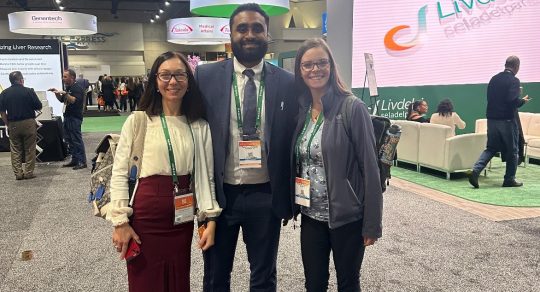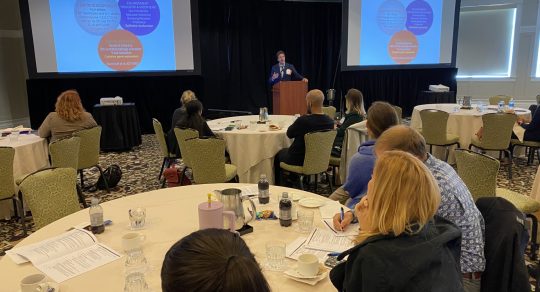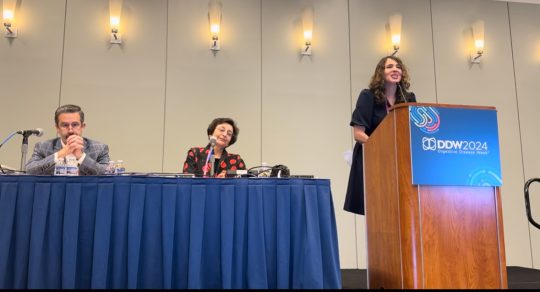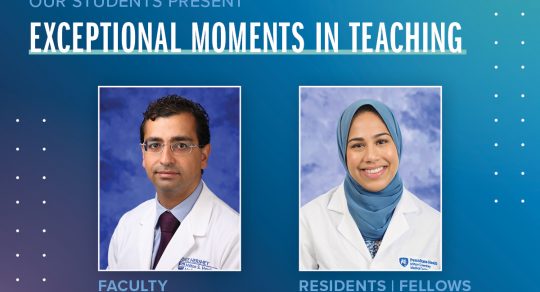Gastroenterology
Moyer Lab
Explore More

About the Lab
The Penn State Interventional Endoscopy Group has a longstanding and productive research program with multiple active research projects primarily focused on EUS-guided tumor ablation and endoscopic tumor resection. The majority of the team’s research program is coordinated and managed by research project manager Stella Chroneos PhD, CCRP, and inquiries on enrollment in trials can be directed to Stella at zchroneos1@pennstatehealth.psu.edu. Open research trials can be reviewed on the Division of Gastroenterology and Hepatology’s clinical trials webpage. The interventional endoscopy team looks forward to further research and innovation, bringing premier leading-edge care to the patients of central Pennsylvania and developing tomorrow’s procedures today through research and publication.
Meet the Team

PGY-6 Fellow, Gastroenterology and Hepatology Fellowship

Professor and Margot E. Walrath Career Development Professor, Medicine


PGY-4 Fellow, Gastroenterology and Hepatology Fellowship
Research Topics, Current Projects and Clinical Trials
The interventional endoscopy group is currently recruiting for the following clinical trials.
CHARM II (Chemotherapeutic Ablation and Resolution of Mucinous pancreatic cysts)
This clinical trial centers on the investigation of treating premalignant pancreatic cystic lesions by EUS delivered chemotherapy. This National Institutes of Health-funded, multicenter, prospective clinical trial will be actively recruiting from 2019-2024.
CLIP II
A multicenter study assessing the safety and efficacy of two different ways to remove large colon polyps. Traditional resection methods involved using electrocautery to remove large polyps, but this can lead to some of the complications associated with large polyp removal. This study directly compares electrocautery to no electrocautery for removing large colon polyps and assesses endoscopic complication rates and local recurrence of polyps at the site of resection trying to determine the best and safest way to remove these lesions.
Hybrid APC assisted large polyp removal (CHUM Trial)
Large colon polyps are frequently removed using endoscopic mucosal resection techniques. Unfortunately, despite multiple different methods of removing and treating the polyps, there is up to a 20% local recurrence rate of the polyp at the previous resection site. This study looks at a novel approach to removing the polyp that reduces the chances of local recurrence.




